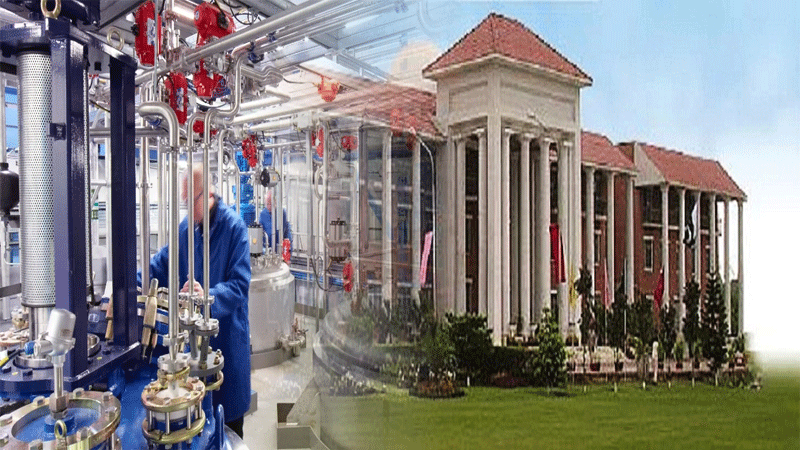President emphasized that Pakistan received an abundance of water from rain and snow, which was enough to meet the country’s needs and could also be saved for future use.

The President of Pakistan opened the National Center of Industrial Biotechnology at the Pir Mehr Ali Shah Arid Agriculture University in Rawalpindi on Friday. Former Pro-Chancellor of the University and minister of agriculture in Punjab and vice chancellor Prof. Dr. Qamaruz Zaman also spoke at the event.
Addressing the gathering, the president stated that there was no shortage of ideas in Pakistan, but rather an abundance of them; however, Pakistan lacked the institutions, relevant laws, and supporting policies to keep pace with the world’s rapid changes and implement wealth-generating ideas in the country.
An industrial biotechnology center is a research facility or organization that focuses on the development and application of biotechnology techniques in industrial processes.
He stated that Pakistan needed to develop intellect-based, highly responsive institutions and systems capable of making sound decisions and keeping up with developed countries, which would aid in the production of products and services that could be readily accepted in international markets.
He stated that, despite the fact that Pakistan is an agricultural country, it suffers from malnutrition and a lack of agricultural commodities; however, it has the potential to be self-sufficient and export food surpluses to other countries.
This, he said, could be accomplished by developing creative and innovative agricultural processes and techniques, which had resulted in the development of high-yielding crops requiring minimal inputs in the developed world.
He urged the country’s research institutions and agriculturists to learn from the best global agricultural practices and combine them with indigenous research to produce high-yielding seeds and crops, as well as to adopt cost-effective vertical farming and hydroponic agricultural techniques to significantly increase the country’s agricultural output.
He emphasized that Pakistan received an abundance of water from rain and snow, which was enough to meet the country’s needs and could also be saved for future use.
He stated that Pakistan needed to communicate and transfer current agricultural knowledge and optimized techniques to farmers at the grassroots level, as well as promote water-efficient irrigation methods, to help transform our country’s centuries-old cultivation and irrigation methods.
This, he added, would not only help the country achieve self-sufficiency but would also improve the lives and livelihoods of Pakistan’s farmers.
The president stated that the breakneck pace of scientific progress had made instruments and analytical tools available that could provide data on the composition, nature, and type of soil, which could then be analyzed through software to provide recommendations on the nutritional and water needs of crops throughout the year.
He stated that these scientific discoveries should be used by our research institutes to develop customized systems and solutions and to constantly communicate them to farmers in order to maximize the use of land, seed, water, and human input.
The president went on to say that, in comparison to the past, knowledge and information are now readily and abundantly available and accessible to everyone all over the world in all sectors and disciplines due to technological advancements in the field of IT and cloud technology.
The president said that knowledge was progressing at a fast pace and Artificial Intelligence was changing the way of life. He added that it would help improve business, trade and investment processes and would bring qualitative improvements in the country’s industry, and its products and services. He said that we should inculcate the use of AI in all our processes, both in the public and private sectors.
He also said that Pakistan faced a shortage of electricity and gas, adding that we should change our attitude and world-view towards energy consumption and focus our energies and resources to use renewable energy sources, like solar and wind energy, for meeting our energy needs.
The president observed that Pakistan was seized with the issue of a fast-growing population whereas this growth rate could be substantially reduced by bringing in economic prosperity and providing education for all, which would automatically arrest the trend of rising population.
He said that by providing education and improving people’s economic conditions, many countries had successfully reduced population growth to zero.
The vice-chancellor of Punjab University has said that 40 programs in industrial and biotechnology center have been restored at the university. Former Pro-Chancellor Prof Dr. Qamaruz Zaman said that Pakistan had not developed its human resources and its agriculture sector to its fullest potential. He said that the productivity and per acre yield of Pakistan’s agriculture sector could be substantially enhanced by the introduction of technology, mechanization, and precision farming techniques.
